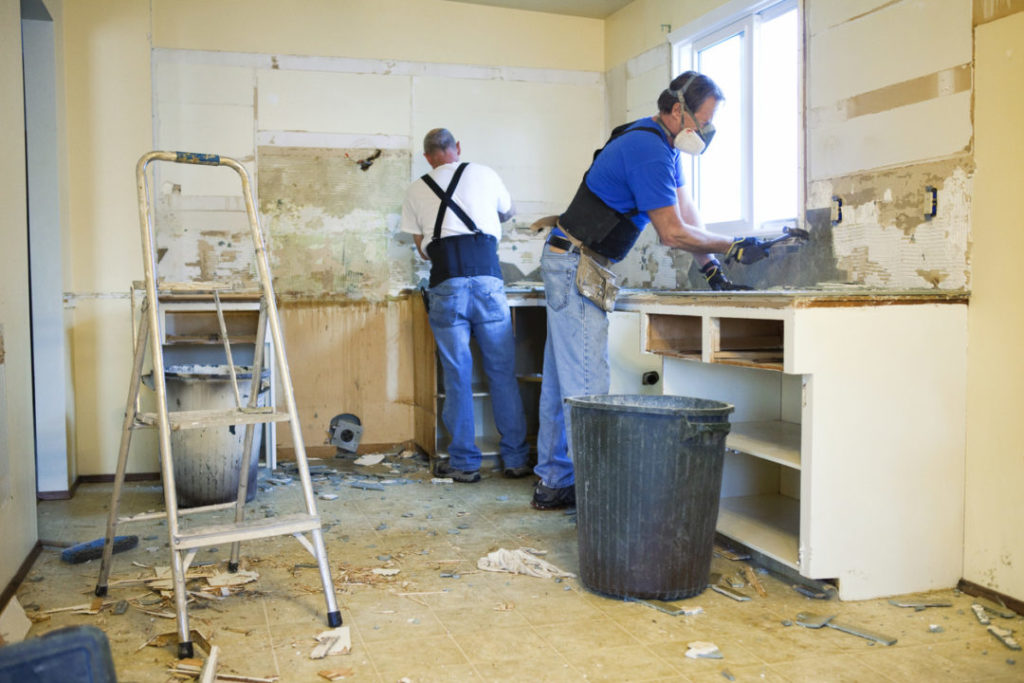
While most people know about the health hazards of the dust borne disease Asbestosis – caused by exposure to asbestos, there’s potentially not enough awareness about Silicosis.
Silicosis is caused by breathing in fine particles of silica, a mineral found in sand, rock and mineral ores such as quartz. This could lead to a life-threatening and irreversible respiratory disease that causes scarring of the lungs, progressively weakening it.
This lung disease is traditionally associated with the mining industry but is now affecting a whole different breed of tradespeople working in the construction industry.
Silica is found in many materials common on construction sites, including sandstone, concrete, masonry, rock, granite and landscaping materials which have been commercially available in Australia since the early 2000s.
Tradespeople who perform tasks such as drilling, grinding and polishing of engineered or artificial stone, like artificial stone kitchen benchtops in a new apartment building, for example, are at risk of being exposed to hazardous levels of silica dust. The dust particles are so fine that they become airborne and can be inhaled deep into the lungs, leading to the formation of scarred tissue.
Symptoms from silicosis may take years to manifest in cases of low exposure over a prolonged period. However, in cases of high exposure to silica dust on a regular basis brings on an early onset of Silicosis. In either case, symptoms can include shortness of breath, frequent chest infections, chest pain, or a persistent cough. Silicosis can progressively get severe enough to cause respiratory failure, which may in the worst case require a lung transplant or lead to death.
While it’s unlikely that you will get silicosis from doing a one-off DIY job renovating your kitchen, the risk increases for workers with prolonged and regular exposure to silica dust with insufficient protective measures in place.
Silicosis doesn’t just take a physical toll, but there’s also the psychological effect of living with an uncertain future living with this incurable disease.
Dust diseases, like Silicosis, can be avoided, and eliminating the exposure to dust particles at the workplace should be a top priority for both employers and employees. Merely using face masks are not enough to protect workers from inhaling silica dust when doing jobs such as cutting and grinding artificial stone. Safety measures such as efficient ventilation and water to settle the dust and prevent it from becoming airborne are some measure that should be in place.
It is every employer’s responsibility to provide a safe workplace that reduces the risk and hazardous exposure to silica for their workers.
If your treating doctor believes you suffer from disability arising from silica exposure, whether as a result of exposure through your workplace or some other means, the Taylor & Scott team of expert dust disease Lawyers can help you to gain compensation for your illness.
How is a dust diseases compensation claim made?
Taylor & Scott Lawyers, led by Partner Ivan Simic (accredited specialist in personal injury) understand the consequences a dust-related disease can have on your quality of living. Undertaking a compensation claim can simply add stress to an already difficult time, so Taylor & Scott compensation lawyers strive to make the legal process as easy for you as possible.
What compensation am I eligible for with a dust disease?
Dust disease compensation is determined by the level of disability suffered, and can include compensation for loss of income, pain and suffering, loss of enjoyment of life amongst other things.
Taylor & Scott Lawyers travel throughout Australia to assist dust disease victims. If you have been employed as a worker within NSW, you may be entitled to a pension or to bring a negligence claim, and we can help explain how to go about this with the minimum amount of fuss.
It’s important to note laws governing personal injury vary in different Australian states and territories. Taylor & Scott Lawyers are your trusted specialists to fight for the rights of dust disease victims. If you or someone you know needs expert advice from our Dust Disease compensation lawyers, phone us on 1800 600 664 or complete the contact form on this page.
At Taylor & Scott Lawyers Experience. Commitment. Results.








